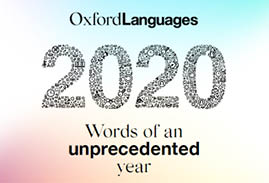Conspiracy theories are everywhere:
Jay Doubleyou: coronavirus and populism
Jay Doubleyou: conspiracy theories
Jay Doubleyou: fake news
Jay Doubleyou: there are several questions around Shakespeare
Jay Doubleyou: conspiracy!
Conspiracy makes a good theme for movies
The 15 Best Conspiracy Theory Movies and Paranoid Thrillers
List of conspiracy-thriller films and television series - Wikipedia
All made up? Conspiracy theories in movies | All media content | DW | 19.05.2020
12 Great Government Conspiracies on Film | Fandango
With the granddaddy of them all:
When it comes to nourishing paranoiac beliefs through pop culture, one of the most iconic works is the 1999 sci-fi political parable The Matrix. A computer hacker, Neo, played by Keanu Reeves, journeys into a reality he didn’t know existed and must battle the system of machines controlling all of humanity. The plot of the movie hinges around a choice Neo makes to take a red pill and to wake up from his blissful ignorance.
How The Matrix Fed Our Conspiracy-Laden World | On the Media | WNYC Studios
And this has fed directly into today's politics:
How Did Conspiracy Theories Come to Dominate American Culture? | Literary Hub
CONSPIRACY THEORIES IN THEPATRIOT/MILITIA MOVEMENT | extremism.gwu.edu
Red pills and dog whistles: It is more than ‘just the internet’ | US & Canada | Al Jazeera
Urban Dictionary: Red Pilled
The New European takes a closer look:
The movies that turned everything tin foil
Published: 9:51 AM November 12, 2020
The two films - and a TV show - that helped make conspiracy theories mainstream.
So let’s recap. This virus that you’re all so scared of isn’t actually real, just a flammed-up cold that’s been exaggerated to enslave the easily-led. But if it is real, then it was cooked up in a government laboratory either in China or the US, and unleashed to destroy the economy of the other.
And any ‘cure’ will be worse still. You think vaccination will save you? Pah! Don’t you realise that’s just a way for the puppet-masters of Davos to steal your precious bodily fluids? It’s all Bill Gates’ doing!
Ahem.
It is very easy to mock conspiracy theories. In fact, it’s near-enough impossible not to; the above might not be the fairest representation of some of the notions currently swilling around online and in people’s actual brains, but who wants to be fair to stuff that contradicts medical science, common sense and the evidence of your own eyes?
Conspiracy theories are nothing new, of course, from Blood Libels to Popish Plots but are flourishing now, in 2020, as never before. The pandemic has certainly stirred it up but the taste for conspiratorial thinking predates the arrival of Sars-COV-2.
Witness QAnon, bubbling away these past couple of years. It’s hard to summarise because it sounds so loopy but broadly speaking, QAnon (which started with an anonymous internet poster calling him/ herself ‘Q’) posits that the only thing standing between a cellar-full of terrified, trafficked children and the rapacious pederasts of the global elite is Donald Trump.
The reasons for this triumph of unreason are many and varied. Before Covid-19, there’s been a steady erosion of trust in the political class (that didn’t start with the Iraq War but was certainly exacerbated by it).
The lack of accountability at the top doesn’t help either (take the 2008 crash, for which no one so much as got their wrists slapped). All of this is poured into the internet and patiently stirred by people otherwise excluded from mainstream discourse.
Something else should be added, however. The role of culture, film and television, has sometimes been overlooked but it has been one of the most powerful drivers in all this, most especially things produced in America...
The movies that turned everything tin foil | The New European








.jpg.rendition.320.320.jpg)